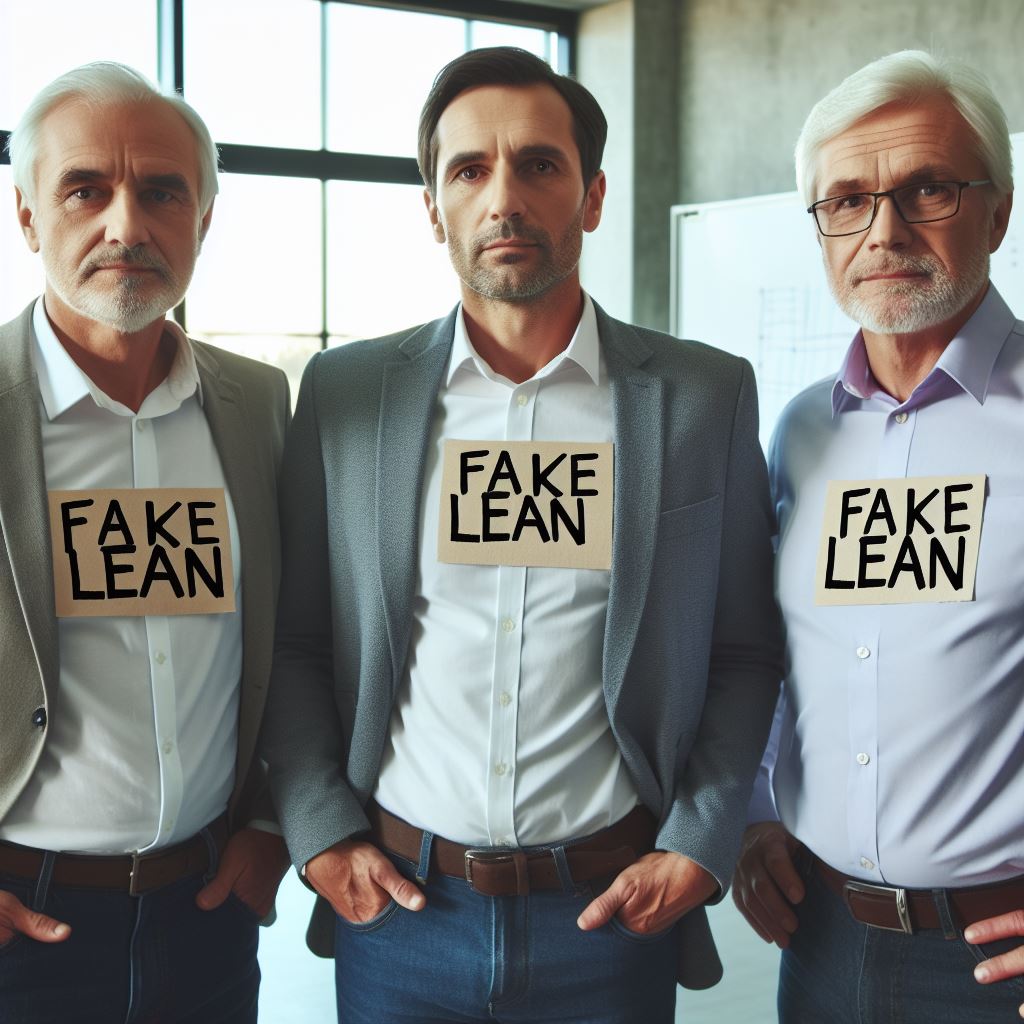
Sometime in late 2000 or early 2001, I coined the phrase “Fake Lean” (learn more about the origin of the phrase here). “Fake Lean” is a description of organizations that practice “Continuous Improvement” without “Respect for People.” In recent years, some people have been using it as a pejorative term which was never my intent.
But now, nearly 25 years later, I think we have to acknowledge that this term also applies to people: “Fake Lean People.” These are long-time Lean movement leaders, Lean influencers, and Lean professionals who publicly profess “Continuous Improvement” and “Respect for People,” but who in private are disrespectful of people and in doing so constrain or limit “Continuous Improvement.” In other words, they hold back the progress of Lean management that they appear, on the surface, to be so dedicated to advancing.
Let me be clear: I do not mean the term “Fake Lean People” as an ad hominem attack or as a pejorative term, but as a factual description of the lack of desire or inability of certain people to “walk the talk.” For if one cannot be consistent behind the scene as well as publicly, then their commitment to Lean is deficient at best and pernicious at worst. In psychological terms, they exhibit passive-aggressive behaviors, a form of real and virtual workplace conflict.
Disrespect for people manifests itself most clearly as who is part of the in-group and who is not. You see it on social media, the members of Lean and related organizations, at conferences, etc. You know very well who is in and who is out from your own observations or interactions. Who and what “Fake Lean People” ignore is far more consequential than what they pay attention to.
This is not unusual for any movement or group trying to move its message forward, no matter how good and right the message is. But in all cases, it undercuts the message because the full weight of the message is significantly reduced. And, importantly, it gives critics plenty of ammunition to diminish and discredit the movement and its members.
Any change has as its goal to upend the status quo, and Lean management is no different. Therefore, it attracts legions of people (multiples of the number of Lean people) who work to preserve the status quo. That’s why “Fake Lean” exists. The keepers of the status quo excel at getting rid of the part of Lean that is most troublesome to them — “Respect for People.”
It seems to me that, overall, the “Fake Lean People” are satisfied with what has emerged over the last 35 years, starting with the vision of Toyota-like Lean companies in every industry to where we are today, “any improvement is good.” They seem satisfied to have traded their ideals for lesser outcomes. As such, they are not serious people, though they sure seem to be.
Let me be clear about one more thing: This post is not about me. I chose long ago to be independent (part of the out-group) so that I can say what needs to be said. My concern is that “Fake Lean People” substantially reduce the visibility of the good work done by many people, making it difficult for them to gain a broader audience so that improvements can be made to the Lean movement and to Lean management itself.
Barring any change, Lean professionals should be concerned that their work could end up being for naught. If that happens, you can thank, in part, “Fake Lean People.”
